Eugene Santos Jr
Detecting Hidden Triggers: Mapping Non-Markov Reward Functions to Markov
Jan 20, 2024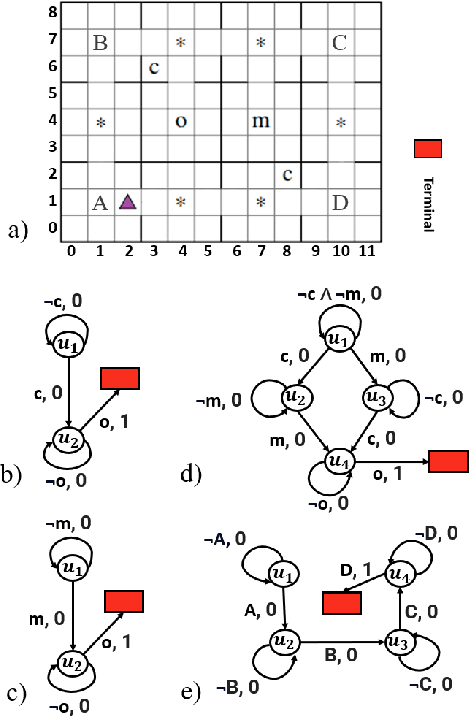

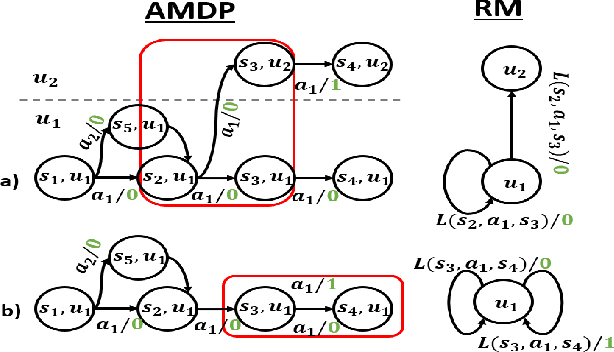
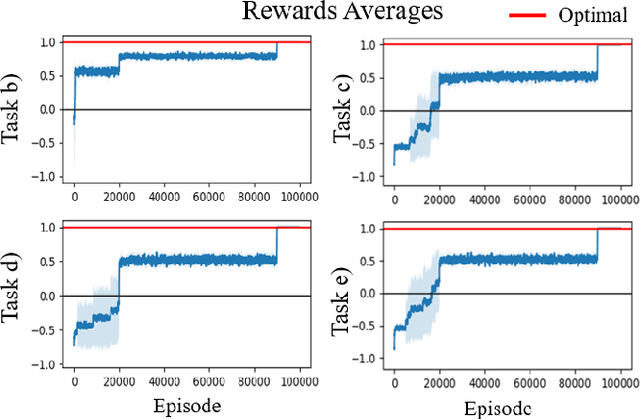
Abstract:Many Reinforcement Learning algorithms assume a Markov reward function to guarantee optimality. However, not all reward functions are known to be Markov. In this paper, we propose a framework for mapping non-Markov reward functions into equivalent Markov ones by learning a Reward Machine - a specialized reward automaton. Unlike the general practice of learning Reward Machines, we do not require a set of high-level propositional symbols from which to learn. Rather, we learn \emph{hidden triggers} directly from data that encode them. We demonstrate the importance of learning Reward Machines versus their Deterministic Finite-State Automata counterparts, for this task, given their ability to model reward dependencies in a single automaton. We formalize this distinction in our learning objective. Our mapping process is constructed as an Integer Linear Programming problem. We prove that our mappings provide consistent expectations for the underlying process. We empirically validate our approach by learning black-box non-Markov Reward functions in the Officeworld Domain. Additionally, we demonstrate the effectiveness of learning dependencies between rewards in a new domain, Breakfastworld.
AI for Open Science: A Multi-Agent Perspective for Ethically Translating Data to Knowledge
Oct 31, 2023
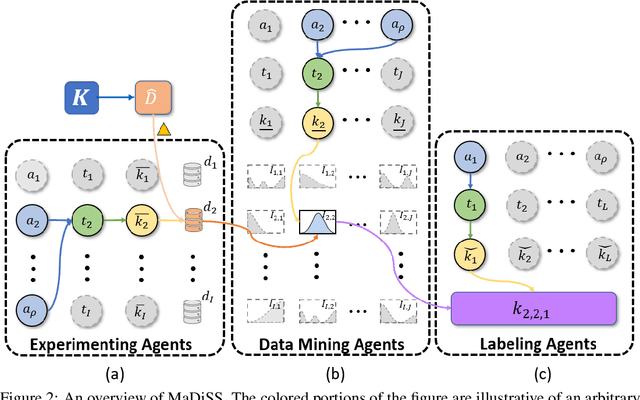
Abstract:AI for Science (AI4Science), particularly in the form of self-driving labs, has the potential to sideline human involvement and hinder scientific discovery within the broader community. While prior research has focused on ensuring the responsible deployment of AI applications, enhancing security, and ensuring interpretability, we also propose that promoting openness in AI4Science discoveries should be carefully considered. In this paper, we introduce the concept of AI for Open Science (AI4OS) as a multi-agent extension of AI4Science with the core principle of maximizing open knowledge translation throughout the scientific enterprise rather than a single organizational unit. We use the established principles of Knowledge Discovery and Data Mining (KDD) to formalize a language around AI4OS. We then discuss three principle stages of knowledge translation embedded in AI4Science systems and detail specific points where openness can be applied to yield an AI4OS alternative. Lastly, we formulate a theoretical metric to assess AI4OS with a supporting ethical argument highlighting its importance. Our goal is that by drawing attention to AI4OS we can ensure the natural consequence of AI4Science (e.g., self-driving labs) is a benefit not only for its developers but for society as a whole.
Learning the Finer Things: Bayesian Structure Learning at the Instantiation Level
Mar 08, 2023Abstract:Successful machine learning methods require a trade-off between memorization and generalization. Too much memorization and the model cannot generalize to unobserved examples. Too much over-generalization and we risk under-fitting the data. While we commonly measure their performance through cross validation and accuracy metrics, how should these algorithms cope in domains that are extremely under-determined where accuracy is always unsatisfactory? We present a novel probabilistic graphical model structure learning approach that can learn, generalize and explain in these elusive domains by operating at the random variable instantiation level. Using Minimum Description Length (MDL) analysis, we propose a new decomposition of the learning problem over all training exemplars, fusing together minimal entropy inferences to construct a final knowledge base. By leveraging Bayesian Knowledge Bases (BKBs), a framework that operates at the instantiation level and inherently subsumes Bayesian Networks (BNs), we develop both a theoretical MDL score and associated structure learning algorithm that demonstrates significant improvements over learned BNs on 40 benchmark datasets. Further, our algorithm incorporates recent off-the-shelf DAG learning techniques enabling tractable results even on large problems. We then demonstrate the utility of our approach in a significantly under-determined domain by learning gene regulatory networks on breast cancer gene mutational data available from The Cancer Genome Atlas (TCGA).
On the Generation of Alternative Explanations with Implications for Belief Revision
Mar 20, 2013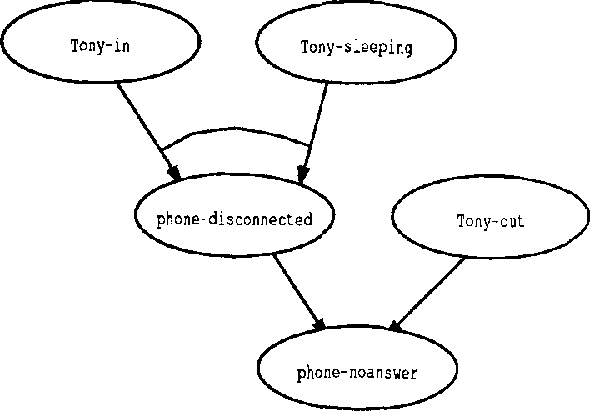
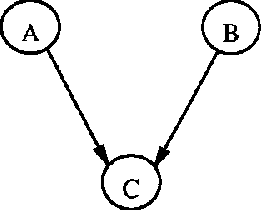
Abstract:In general, the best explanation for a given observation makes no promises on how good it is with respect to other alternative explanations. A major deficiency of message-passing schemes for belief revision in Bayesian networks is their inability to generate alternatives beyond the second best. In this paper, we present a general approach based on linear constraint systems that naturally generates alternative explanations in an orderly and highly efficient manner. This approach is then applied to cost-based abduction problems as well as belief revision in Bayesian net works.
Cost-Sharing in Bayesian Knowledge Bases
Feb 06, 2013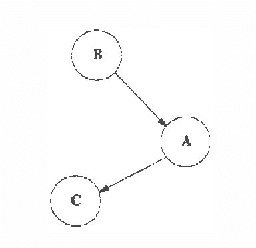



Abstract:Bayesian knowledge bases (BKBs) are a generalization of Bayes networks and weighted proof graphs (WAODAGs), that allow cycles in the causal graph. Reasoning in BKBs requires finding the most probable inferences consistent with the evidence. The cost-sharing heuristic for finding least-cost explanations in WAODAGs was presented and shown to be effective by Charniak and Husain. However, the cycles in BKBs would make the definition of cost-sharing cyclic as well, if applied directly to BKBs. By treating the defining equations of cost-sharing as a system of equations, one can properly define an admissible cost-sharing heuristic for BKBs. Empirical evaluation shows that cost-sharing improves performance significantly when applied to BKBs.
 Add to Chrome
Add to Chrome Add to Firefox
Add to Firefox Add to Edge
Add to Edge